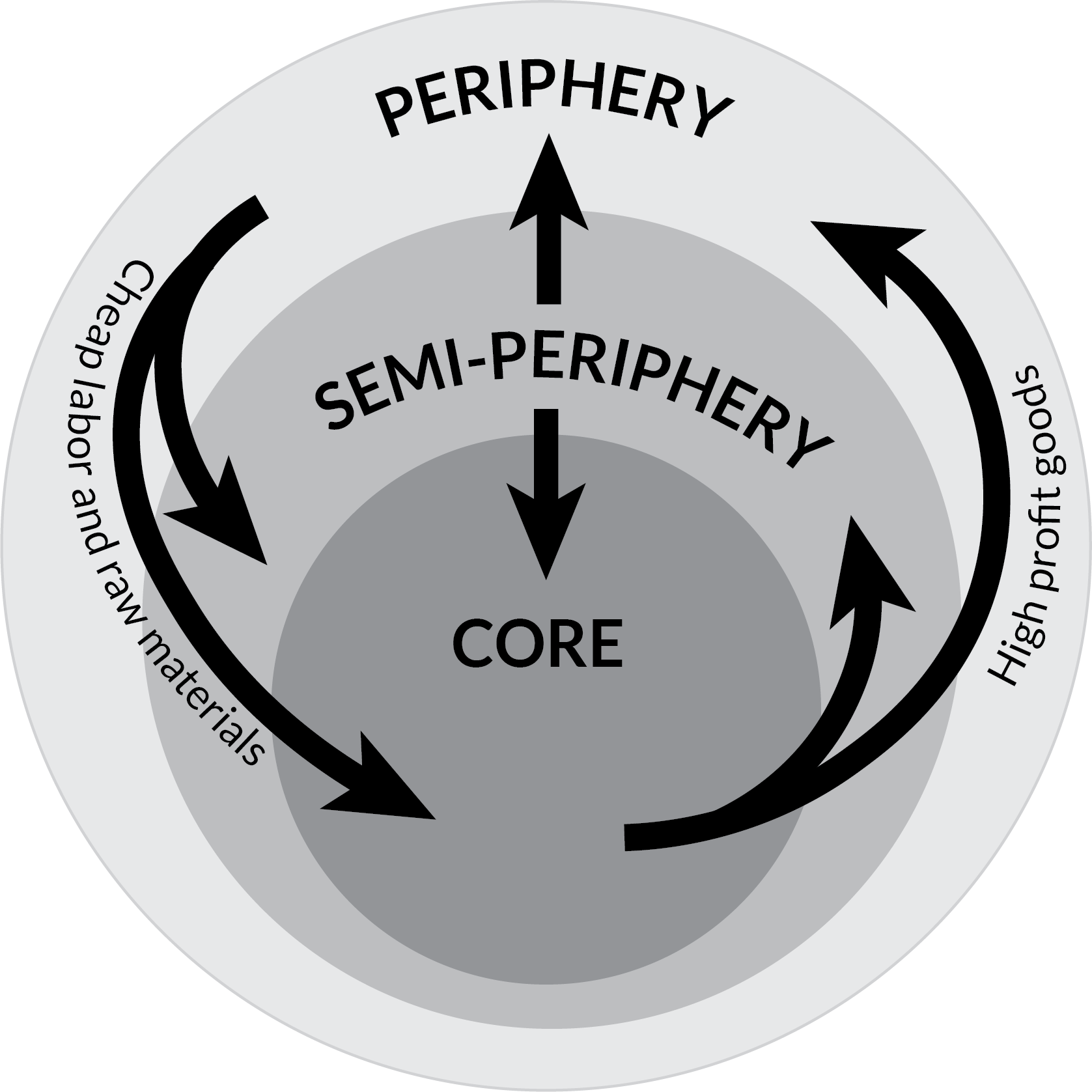- Home
- Prelims
- Mains
- Current Affairs
- Study Materials
- Test Series
Explain the central tenets of the World-Systems Theory. 10 Marks (UPSC CSE Mains 2024- Political Science and International Relations, Paper 2)
The world system theory provides an alternate to the conventional analysis of economic development. It developed as a critical perspective to the modernization and industrialization processes that circumscribed the traditional understanding of development. Influenced by the Marxist tradition both the world-system theory and dependency theory provide a basis to reflect on development as a process of capital accumulation and competitive and conflictual interests between the dominant and dominated.
In 1974, Immanuel Wallerstein developed ‘world systems theory’ to present a much longer-term view of the history of states and their interactions. He distinguished three groups of states or regions: the core, the semi-periphery and the periphery. The aim was to understand how states have developed since the sixteenth century in relation to each other, thereby creating relations of dependency between different groups of states depending on the speciic types of economies and industries they specialised in. The core group of states (e.g. in Western Europe and North America) refers to democratic governments providing high wages and encouraging high levels of investment and welfare services. The semiperiphery states (e.g. in Latin America) are authoritarian governments that provide low wages and poor welfare services for their citizens. Periphery states (e.g. sub-Saharan and Central Africa, South Asia) refer to nondemocratic governments where workers can mostly expect wages below subsistence levels and where there are no welfare services.

The division of labor established by capitalism ensures that core countries continually accumulate wealth at the expense of peripheral nations. This happens through unequal exchange, where core nations acquire raw materials and labor from the periphery at low costs, process them into high-value goods, and sell them back to periphery countries at much higher prices. This dynamic creates a cycle of dependency where peripheral nations struggle to escape their subordinate position. Even when peripheral nations attempt to industrialize or modernize, they are often constrained by global economic pressures that favor the continued dominance of core nations. Wallerstein said that a world-system is a "multicultural terirtorial division of labor in which the production and exchange o basic goods and raw materials is necessary for the everyday life of its inhabitants."
GET OUR FULL SET STUDY MATERIALS FOR Political Science and International Relations (PSIR) Optional Paper @ https://crackingiasbooks.com/product/political-science-full-set-6-volumes/










 Latest News
Latest News
 General Studies
General Studies